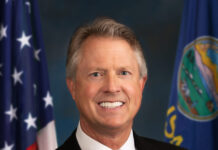There are many more Christians who gave up on politics after the election of Ronald Reagan didn’t bring in the millennium or something close to it. And when George H. W. Bush got elected, and Bill Clinton got elected twice, and George W. Bush turned out to be a huge disappointment, hopelessness set in. All that work, and for what? Christians who are experiencing political remorse are really suffering from a case of faulty theology.
Political remorse is not new. Joshua went through a similar experience when he sent troops to Ai. He expected a victory. Israel won its first encounter with Jericho without a casualty. Why should the battle with Ai be any different? The spies thought Ai was weak enough that only “two or three thousand men need go up” (Josh. 7:3). Thirty-six Israelites were killed, and the rest were pursued and assaulted by the men of Ai with the result that “the hearts of the people melted and became as water” (7:5).
You know what the Israelites were thinking. “Maybe we should have stayed out of this political thing. We were at least safe when we were ghettoized beyond the Jordan.” There was even fear that things would get a lot worse once the “Canaanites and all the inhabitants of the land” heard about the defeat (7:9). Joshua, voicing these concerns to God, did what today’s political remorseful are recommending. “Then Joshua tore his clothes and fell on the earth on his face before the ark of the LORD until evening, both he and the elders of Israel” (7:7). In a word, they took the first needed step, they prayed … hard.
What did God tell him to do? “So the LORD said to Joshua, ‘Rise up! Why is it that you have fallen on your face? Israel has sinned, and they have also transgressed My covenant which I commanded them’” (7:11). In effect, God told Joshua it was time to stop praying and act on the evil that resulted in defeat!
Prayer is not a magical formula, an incantation that brings forth God like a genie from a bottle. Prayer is an admission of weakness. It is in weakness that God can best use us (2 Cor. 12:9–10). But true faith and trust are not exercised if we do not act on the belief that God will work for us even in our weakness.
R. J. Rushdoony (1916–2001) has written many profound thoughts in his illustrious and forward-thinking publishing career. I found the following from his book The Mythology of Science (95) especially appropriate for Christians who say things like “I’ll pray about it and leave the results up to God.”
According to the Bible, with God all things are possible, but God does not choose to do all things for men. Men must face problems, moral choice, responsibilities, griefs and disasters, and men must grow in terms of these things. The Bible makes abundantly clear God’s miraculous power, but it makes equally clear that man’s first problem is his apostasy, his moral rebellion against God. Man needs salvation by God, growth in grace, and maturity, as a pre-condition to prosperity under God. And this world at its best involves work, although work under God’s grace is blessed rather than cursed.
The more complete response is to “pray about it, act on what needs to be done, and leave the results up to God.” So much prayer misses that middle step.
Prayer is not the end but the beginning of the work God has called us to do. J. I. Packer says it this way:
The Spirit does what He does. His supernaturalizing of our lives enables Christians, as a matter of fact, to do much for the Lord that they wouldn’t be able to do otherwise. That’s the whole doctrine of gifts and ministry. It’s my part to see what God calls me to do, to ask the Lord to enable me to do it, then to get up off my knees and go confidently into action, watching to see what help I shall be given, and finally to give thanks for what the Spirit did in and through me.
There is sin in the Christian camp. Entire denominations support abortion and homosexuality or remain silent which is the same as giving support. Politicians, many who claim to be Christians, maintain that abortion should be a protected right. They’re “personally opposed” to abortion, but they can’t impose their personal morality on others. Are they personally opposed to slavery and racial discrimination? Sure they are. Would they vote for laws to stop them? Sure they would. If someone is personally opposed to abortion because abortion takes a human life, then a law prohibiting abortion is a moral necessity.
The sins of Achan — “the mantle of Shinar” (humanism) and “silver and gold” (mammon)—are the sins of the church. Many pastors are afraid of losing members and their money if they teach what the Bible says about the sins of abortion, homosexuality, and so much more. Their sermons are humanistic in that they cater to the demands of people and their needs and wants rather than to God and His laws. We will not change things at the top until we change things at the bottom. Too many Christians want to go back to the fleshpots of Egypt, to the good old days of politics. They were never that good.
Prayer is a good and necessary practice. But after we fall on our faces before God, let’s be careful not to cover our ears and put our hands in our pockets. We might just hear God’s voice say, “Rise up! Get up and vote! Vote as a son of Issachar would vote: “Men who understood the times with knowledge of what Israel should do” (1 Chron. 12:32). This means being an informed voter.
What is the proper relationship between praying and doing? That is, after praying is the petitioner required to do anything about what she is praying for? If a person prays for employment, does he have to look for work? When you pray to play the piano well, do you still have to practice? Praying that someone will be warmed and filled is not enough (James 2:16). We can apply the faith without works admonition to prayer and works. One without the other is dead.
The apostle Paul urges “that entreaties and prayers, petitions and thanksgivings, be made on behalf of all men, for kings and all who are in authority, so that we may lead a tranquil and quiet life in all godliness and dignity” (1 Tim. 2:1–2; cf. Titus 3:1; 1 Pet. 2:13–15). Praying for all men does not absolve us of the responsibility of acting on these prayers when an opportunity presents itself. If this is true concerning “all men,” then it’s certainly true when it comes rulers “and all who are in authority.” This mean, given the opportunity and the freedom, that praying for civil officials is not all that’s required of us. If there is something that we can do to stop policies that damage the life of widows and children and the poor (indiscriminate aid), oppress the population by taxation, and debase the currency which affects everyone’s purchasing power (theft by fiat money), then we have a duty to pray and act before God does in judgment (see Isaiah 1:21–26).
Neither the advance of the gospel nor the advance of Christian civilization came about only by praying about it. Christians worked hard to change laws, to be involved, to call civil and church officials to account. We are losing these freedoms because the church has not been preaching a comprehensive worldview. Many pastors are content to just pray about it.
Keep in mind that politics is not the sole solution to what ails this nation. There are many things that can be done of a non-political nature. But while we are fixing families, churches, schools, and businesses, and ways to care for the poor, sick, and infirm, we must take into account the political beast that is crouching at the door.

Culture 101: Christ is King Over All
Culture 101 is a much-needed primer on how to live out the Christian worldview. Jesus said to ‘do business’ until He returns, and that means living and working in the world. Christians are sometimes given the idea that only ‘spiritual’ pursuits are worthy of the true Christian, but this is a misguided view. The truly spiritual Christian will have great impact in all areas of life, including business, entertainment, and art.

Unconditional Surrender
A primer in the Christian faith, Unconditional Surrender provides readers curious about the Bible with the blueprint of a biblical worldview. Using the Bible’s basic teachings about God, man, law, judgment, and time—and illustrating how these beliefs affect society at large—Gary North wades in at the heart of the battle in today’s culture war, and shows that the Bible has the answers modern science and socialism lack.

















Excellent message. The Church MUST listen and hear this message. Nothing positive is going yo happen in America till the Church starts to obey God’s Word. .